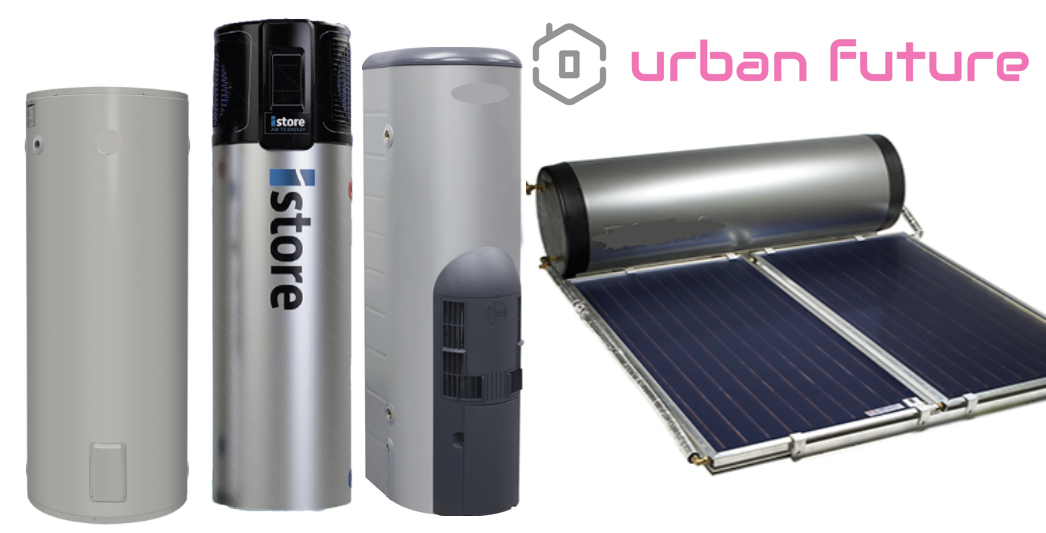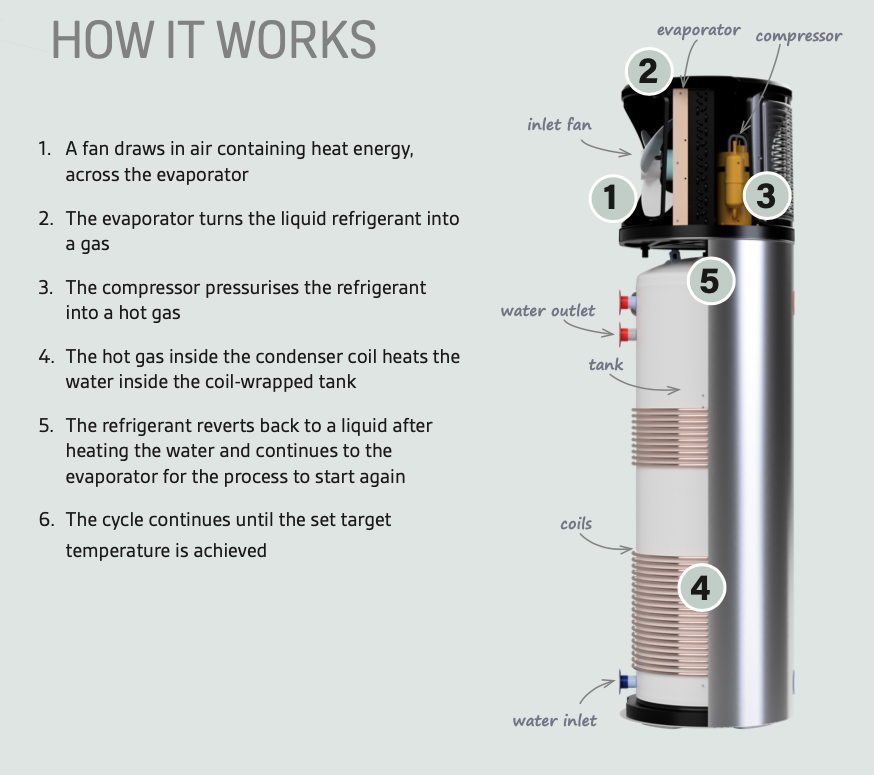
The Ultimate Guide to Choosing the Best Hot Water System
Introduction – Unlocking Luxury and Efficiency
Welcome to Urban Future, where luxury meets sustainability. In this comprehensive guide, we will explore some of the options available so you can choose the best hot water system for your needs. Whether you’re looking to upgrade your current system or seeking a new installation, we’ve got you covered.
1: Factors to Consider When Choosing the Best Hot Water System
When selecting the best hot water system for your home, it’s crucial to take several factors into consideration. By evaluating these factors, you can ensure that your chosen system aligns perfectly with your lifestyle. Let’s explore the key considerations when making this important decision:
- Hot Water Demand:
Start by understanding the hot water demands of your household. Consider the number of occupants, their bathing habits, and any additional hot water requirements such as spa baths or multiple showers. This will help determine the appropriate size and capacity of the hot water system you need to ensure an uninterrupted supply of luxurious hot water. - Energy Efficiency:
Luxury and sustainability go hand in hand. Look for a hot water system that prioritizes energy efficiency. Energy-efficient systems not only minimize your impact on the environment but also provide long-term cost savings. Heat pump hot water systems excel in this area, as they utilize renewable energy to efficiently heat your water, resulting in lower energy consumption and reduced utility bills. - Installation Requirements:
Consider the installation requirements of each hot water system option. Some systems, like electric hot water systems, are relatively straightforward to install, they may require extensive electrical work, the difficulty of which depends on the homer. However, others, such as solar or heat pump systems, may require additional space for equipment like solar panels or outdoor units. Evaluate your property’s suitability for the installation of different systems to ensure a seamless integration into your lifestyle. - Maintenance and Lifespan:
Convenience and peace of mind. Heat pump systems, for example, are simple to service and are known for their durability, ensuring years of hot water without frequent repairs or replacements. - Budget:
While luxury often comes with a higher price tag, it’s important to consider your budget when selecting a hot water system. Evaluate the upfront costs, ongoing maintenance expenses, and potential long-term savings associated with each option. Heat pump systems may have a higher initial investment compared to electric systems, for example, but their energy efficiency can lead to significant cost savings over time. - Environmental Impact:
For the eco-conscious, the environmental impact of the chosen hot water system is a crucial consideration. Look for systems that minimize greenhouse gas emissions and prioritize renewable energy sources. Heat pump and solar hot water systems, for instance, are excellent choices as they utilize renewable energy and contribute to a greener and more sustainable future. If this is your only focus then either solar or a heat pump would be the best hot water system for you. A heat pump paired with solar power does pull ahead as it does not require boosting in winter and its running cost is negated by your solar.
By carefully considering these factors, you can make an informed decision and select the best hot water system that perfectly blends luxury, efficiency, and sustainability. Remember to consult with professionals who can provide expert guidance tailored to your specific needs and preferences. Elevate your bathing experience with a hot water system that aligns with your luxurious lifestyle and values.
2: Advantages and Features of Heat Pump Hot Water Systems
Heat pump hot water systems offer a multitude of advantages and features that make them a top choice for those seeking luxury, efficiency, and sustainability. Let’s explore some of the key benefits and features that set these systems apart and why they may be the best hot water system for you:
- Energy Efficiency:
One of the standout advantages of heat pump hot water systems is their exceptional energy efficiency. By utilizing heat from the air or ground, these systems can generate up to three times the amount of energy they consume. This high coefficient of performance (COP) translates into substantial energy savings and reduced utility bills. Embrace the perfectly heated water while being mindful of your environmental impact. - Cost Savings:
With their energy-efficient operation, heat pump hot water systems can lead to significant cost savings over time. While the initial investment may be higher than traditional electric systems, the long-term savings on energy bills can quickly offset the upfront costs, giving you access to hot water without compromising your financial wellbeing. - Renewable Energy Usage:
Heat pump hot water systems are designed to harness renewable energy sources, making them a sustainable choice for luxury living. By extracting heat from the air or ground, these systems minimize reliance on fossil fuels and reduce greenhouse gas emissions. Embrace the choice of a hot water system that aligns with your commitment to a greener future. - All-Weather Performance:
One of the remarkable features of heat pump hot water systems is their ability to operate efficiently in various weather conditions. Whether it’s scorching summer heat or freezing winter temperatures, these systems can extract heat energy from the air or ground. This ensures a consistent supply of hot water, regardless of the external weather conditions.No more gas pilot lights being blow out in the wind, no more needing to boost because the sun is hiding behind clouds and when paired with solar power, you heat your hot water for free with energy you created. - Versatile Installation Options:
Heat pump hot water systems offer versatile installation options, providing flexibility to suit different property types and layouts. They can be installed indoors or outdoors, depending on your preferences and available space. This adaptability allows for seamless integration into your lifestyle, ensuring maximum convenience and comfort. - Long Lifespan:
When investing in a hot water system, durability and longevity are paramount. Heat pump hot water systems are known for their long lifespan, providing you with years of reliable performance. With proper maintenance, these systems can serve you well into the future, ensuring a continuous supply of hot water.
By embracing the advantages and features of heat pump hot water systems, you can elevate your bathing experience to new heights of luxury and sustainability. Enjoy the benefits of energy efficiency, cost savings, renewable energy usage, and versatile installation options. Immerse yourself in the serenity of quiet operation and the assurance of a long lifespan with a heat pump hot water system that combines efficiency and environmental consciousness.
3: The Inner Workings of Heat Pump Hot Water Systems
Let’s take a closer look at how this fascinating and innovative technology work its magic while minimising your environmental impact.
- Heat Pump Technology:
At the heart of a heat pump hot water system is the heat pump itself. This technology works on the principle of transferring heat from one location to another using a refrigerant. The refrigerant absorbs heat energy from the surrounding air or ground and then undergoes a compression process that raises its temperature. - Absorption of Heat:
The heat pump draws in ambient heat from the air or ground surrounding your home. Even in colder climates, there is still heat energy available for extraction. This is made possible by the refrigerant’s ability to absorb heat at low temperatures. - Compression and Temperature Increase:
Once the heat is absorbed by the refrigerant, it undergoes compression through a compressor. This compression process increases the temperature of the refrigerant, transforming it into a high-pressure, high-temperature gas. - Heat Exchange:
The high-temperature refrigerant gas passes through a heat exchanger, commonly known as a condenser. In the condenser, the hot refrigerant transfers its heat energy to the water stored in the hot water storage tank. This heat exchange process raises the temperature of the water to the desired level. - Release of Heat and Refrigerant Reversal:
After the heat exchange, the refrigerant, now cooled and in a liquid state, passes through an expansion valve. This valve reduces the pressure on the refrigerant, causing it to evaporate into a low-pressure gas. During this evaporation process, the refrigerant absorbs heat from the surrounding air or ground, preparing it for the next cycle. - Energy Efficiency:
One of the key advantages of heat pump hot water systems is their exceptional energy efficiency. The heat pump technology allows the system to extract and transfer heat energy from the environment, rather than relying solely on electrical resistance heating. This results in significantly reduced energy consumption, making heat pump systems an environmentally friendly and cost-effective option for luxury hot water.
By harnessing the power of heat pump technology, these systems provide a reliable and sustainable source of luxurious hot water. The cycle of heat absorption, compression, heat exchange, and refrigerant reversal allows heat pump hot water systems to optimize energy usage and minimize waste. Embrace the inner workings of this innovative technology and indulge in the opulence of perfectly heated water while reducing your carbon footprint.
3: Comparing Heat Pump Hot Water Systems to Other Options
When it comes to choosing the best hot water system, it’s essential to consider all available options. Let’s compare heat pump systems to other popular choices like solar, gas, and electric systems, highlighting the pros and cons of each.
Solar Hot Water Systems:
Pros:
- Utilizes free and renewable energy from the sun, reducing reliance on fossil fuels.
- Can provide significant energy savings, especially in sunny climates.
- Environmentally friendly and reduces carbon footprint.
Cons:
- High upfront installation costs.
- Requires ample roof space for solar panels.
- Performance may be affected by weather conditions and seasonal variations.
Gas Hot Water Systems:
Pros:
- Quick and efficient heating, providing hot water on demand.
- Suitable for areas with natural gas connections.
- Lower greenhouse gas emissions compared to electric systems.
Cons:
- Reliance on fossil fuels, contributing to carbon emissions.
- Ongoing costs associated with gas supply and maintenance.
- Limited availability in certain regions without access to natural gas.
Electric Hot Water Systems:
Pros:
- Widely available and easy to install.
- Lower upfront costs compared to other options.
- Can be suitable for smaller households with lower hot water demand.
Cons:
- Higher energy consumption and associated costs.
- Limited environmental sustainability, especially if sourced from non-renewable energy.
Heat Pump Hot Water Systems (Favored Choice):
Pros:
- Exceptional energy efficiency, utilizing renewable energy to heat water.
- Significant cost savings on energy bills compared to electric systems.
- Quiet operation and long lifespan.
Cons:
- Higher upfront costs compared to electric systems.
- Requires adequate space for installation.
- May have lower performance in colder climates.
Ultimately, the choice between heat pump, solar, gas, or electric hot water systems depends on your specific needs, budget, and geographical location. Heat pump systems offer a luxurious and sustainable option, combining energy efficiency with long-term cost savings. Consider your priorities and consult with professionals to make an informed decision that aligns with your desired lifestyle.
4: Frequently Asked Questions About Hot Water Systems
Let’s address the most common questions people have when searching for the best hot water system:
- What makes a heat pump the best hot water system over other options?
Heat pump systems offer energy-efficient operation, quiet performance, long-term cost savings on top of being an eco friendly choice. - Are heat pump hot water systems suitable for all climates?
Heat pump systems are designed to work effectively in a wide range of climates, including colder regions. - How much can I save on energy costs with a heat pump hot water system?
On average, heat pump systems can save you up to 50% on your water heating costs compared to traditional electric systems. - What maintenance is required for a heat pump hot water system?
Regular maintenance, including cleaning filters and checking refrigerant levels, is recommended to ensure optimal performance and longevity. - Can a heat pump system be used with existing plumbing infrastructure?
Yes, heat pump systems can be retrofitted to work with existing plumbing infrastructure, making them an excellent choice for upgrades. - How long do heat pump hot water systems typically last?
With proper maintenance, heat pump systems can last up to 15 years or more, providing you with long-term reliability and luxury. - Are heat pump hot water systems eligible for any government incentives or rebates?
Depending on your location, you may be eligible for government incentives or rebates when installing a heat pump hot water system. Check with local authorities for more information. - Can a heat pump system be integrated with smart home technology?
Yes, some heat pump hot water systems can be integrated with smart home technology, allowing you to control and monitor your water heating remotely. These are often more expensive and an unnecessary cost as the majority of the time heat pumps, as most hot water systems, are set and forget.This technology can be useful with other heat pump technology like pool heating for example. The Evoheat Fusion and Force models have this functionality. A heat pump is the best hot water system for heating your pool. - Are heat pump hot water systems noisy?
They typically operate between 37-48dBA, this is often less than an air-conditioning unit. Consider making sure the brand you get operates within these noise levels. They’re most commonly used during day time hours only, operating on a timer to work in tandem with your solar power system, so with regular day time noise pollution its hardly recognisable. - Can I install a heat pump hot water system myself, or do I need professional assistance?
It is recommended to hire a qualified plumber to ensure proper installation and optimal performance. In addition to this, as heat pumps generate STC’s to offset the cost of the system, you will need a plumbing certificate to verify it was installed by a qualified plumber.
Conclusion:
As we conclude this guide, we hope you have gained valuable insights into the world of hot water systems and the luxurious advantages of heat pump technology. Remember to consider your unique needs, preferences, and the benefits that a heat pump hot water system can bring to your lifestyle. Whether you’re seeking a touch of luxury or aiming for a greener future, a heat pump hot water system is the epitome of indulgence and efficiency. Visit our website to explore our range of hot water systems and embark on a journey towards selecting the best hot water system or your needs so you can live a more luxurious and sustainable lifestyle.
For additional information consider reading this post by Forbes regarding heat pumps.
Contact the Urban Future team here at urbanfuture.com.au/contact-us/ or call us on (08) 93437337 for more information






